Biblical animals
As the donkey plays a key part in this month’s Easter story, Jackie Macadam focuses on the stories of the animals in the Bible.
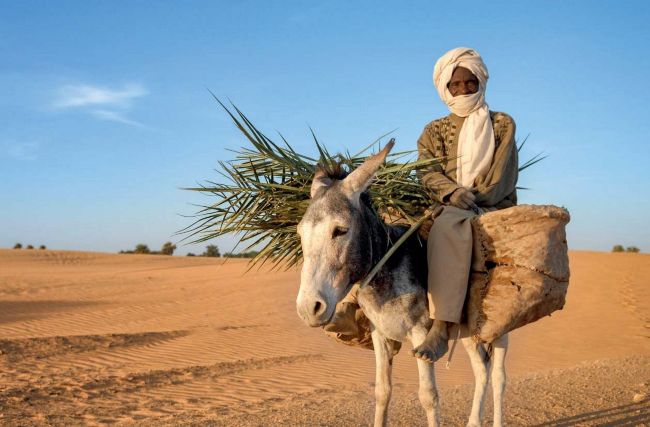
Images: iStock
If you can start the day without caff eine,
if you can always be cheerful, ignoring aches and pains,
if you can resist complaining and boring people with your troubles,
if you can eat the same food every day and be grateful for it,
if you can understand when your loved ones are too busy to give you any time,
if you can take criticism and blame without resentment,
if you can conquer tension without medical help
if you can relax without alcohol,
if you can sleep without the aid of drugs, then you are probably… the Family Dog!
(Source Unknown)
ANIMALS.
The Bible is full of them. Big ones, like the leviathan, now taken to mean a whale, that swallowed Jonah, ‘unclean’ ones, like the herd of pigs Jesus cast the demons into, and of course, the ark was stuff ed full of them.
Donkeys are widely used in the Middle East even today. Practical, small in size, strong and patient. Not fussy eaters, relatively easy to keep and accessible. Donkeys are still used today.
But donkeys seemed to have a special place in the Bible. There can’t be many who have attended Sunday School without colouring in at least one picture of Jesus riding into Jerusalem on his little donkey. Was there some special symbolism to the donkey?
“Not so much,” says Professor Helen Bond, Head of the School of Divinity at New College in Edinburgh.
“People tend to think of donkeys as humble beasts, the transport of the poor,” she says.
“But that’s not really correct. “Donkeys were the usual way of getting about in the first century, the ‘Ford Mondeo’ you might say.
“They are generally regarded as ‘stupid’ and difficult to control, and this is the basis of the Balaam story where the prophet has difficulty with his donkey. (Num 22.21-33). “In the Hebrew Bible they are found as beasts of burden or as mounts.
“For example, when Abraham goes to sacrifice his son, Isaac, he saddles his donkey.
“Though royalty sometimes ride donkeys, it was actually much more common for them to ride on mules, the sterile off spring of a donkey and a horse.
“For instance, Solomon rode to his own coronation on a mule in 1 Kings 1.33, 36, and David’s sons tend to use mules to get around as well. (2 Sam 13.29, 18.9). “Horses and stallions were associated with war.
“They are not really common in the Hebrew Bible except in accounts of battles. “In Zech 9.9, where the future king rides into Jerusalem on a donkey, there might well be a hint of humility in the action. There could be a sense that the conquering king is on a donkey rather than a war-stallion, but equally the reference to humility may refer to his demeanour rather than his mount. “Certainly in the case of Jesus, riding into Jerusalem on any kind of a mount (rather than walking in pilgrimage), was a claim to authority rather than humility.”
Even before Jesus, animals and particularly birds, were important. Noah released a dove from the ark to see whether the waters of the flood had begun to recede. When it brought back a leaf in its beak, Noah knew that plants were once again emerging from the waves. During the ten plagues, God used locusts, a scourge even today if they swarm, to decimate the Egyptian crops and force them to release the Hebrews.
Again in the Old Testament, the story of Daniel in the lion’s den is one that children are often told at Sunday school and even today the story remains strong and powerful.
And who can really forget the original representation of evil in the Bible – the snake that was said to have tempted Eve? In fact, some scholars say there are well over 100 named animals in the Bible, from types of deer, to various birds, from behemoths to dragons and all kinds of insects.
The Blessing of the Animals is a real opportunity to think about the life we all share with all the animals and plants on the planet and the interdependency that entails.
Most are of course, the more mundane everyday animals; the working animals of the Middle East. But some get a mention in more exotic circumstances. The crocodile is assumed to be the (leviathan) creature mentioned in Job when there is a vivid description of his scales and size, the difficulty of penetrating its hide with weapons, the mouthful of teeth and his immense strength.
Lions, of course, are mentioned as they were relatively common at the time and other big cats, like leopards were kept by kings as hunting accessories. But the animals in the Bible were imbued with more than just their physical presence. Often, a deeper significance was given to them; a significance that seems to still apply to some of them today.
The lamb is of course, very closely associated with Jesus and sacrifice. “Lambs were sacrificed in the temple morning and night (known as the tamid off ering) which atoned for sin,” says Helen.
“Most people in the ancient world sacrificed pigs, but they were unclean to Jews so Jews sacrificed lambs instead.
“Having a lamb or sheep was important in a subsistence economy so to off er one to the Temple was a real sacrifice for the family.” For most of us, contact with animals comes from sharing our lives with a pet of some sort.
For some churches that gives the opportunity to have a special ‘Blessing of the Animals’ service annually.
Greyfriars Kirk in the middle of Edinburgh’s Old Town, is famous for the wee Skye terrier who stayed on his master’s grave for years, and who came to be known as ‘Greyfriars Bobby’.
Buried just inside the graveyard walls, a visit to the grave is high on the list of ‘must-do’s’ for thousands of tourists to the capital.
Minister the Rev Dr Richard Frazer says the Blessing of the Animals is a real opportunity to think about the life we all share with all the animals and plants on the planet and the interdependency that entails.
“I think it is an opportunity for people to express their gratitude, not just for the pets they have but for the idea that we share life with plants and animals. Life would be unimaginable, indeed impossible, without them, and so it reminds us of our duty of care to the whole of creation. According to Genesis, human beings were put in the garden to ‘tend it and serve it’.
“Very simply, for many people the presence of animals is one of the great blessings of life, overcoming loneliness, reducing stress, and providing profound companionship.
“Initially, we were approached by the Skye Terrier Association who were concerned about the breed dying out. Due to our connection with Greyfriars Bobby, who was a Skye terrier, we agreed to host a pet blessing service, and it has now become an annual event, which is well supported.
“We draw inspiration from Psalm 104, which is a list of many of the animals, plants and wonders with which we share life. One of my favourite parts of that passage is the mention of the Leviathan, the great sea monster described in the psalm as God’s plaything. So, someone once described Leviathan as ‘God’s rubber duck’.
“We especially enjoyed hosting an army pony, ‘Lochnagar’ several years back. I invited the pony and its master to join us in the church for the service with the rest of the people and animals. His master replied: ‘I don’t think that is such a good idea…he’s just had his lunch.’ And so the pony stood in the Kirk porch, observing from a safe distance.
“We’ve had many unique animals
throughout the years, but never any snakes (so far, thank goodness),” he laughs.
The church’s connection with the army extends back as far as the days of Greyfriars Bobby himself, it’s said.
“According to legend, the soldiers who used to fire the cannon at Edinburgh Castle at one o’clock would feed Greyfriars Bobby. Every day, he would go from the Kirk Yard where he kept vigil at his master’s grave up to the castle to get his lunch. So there is a connection to the army through Greyfriars Bobby.
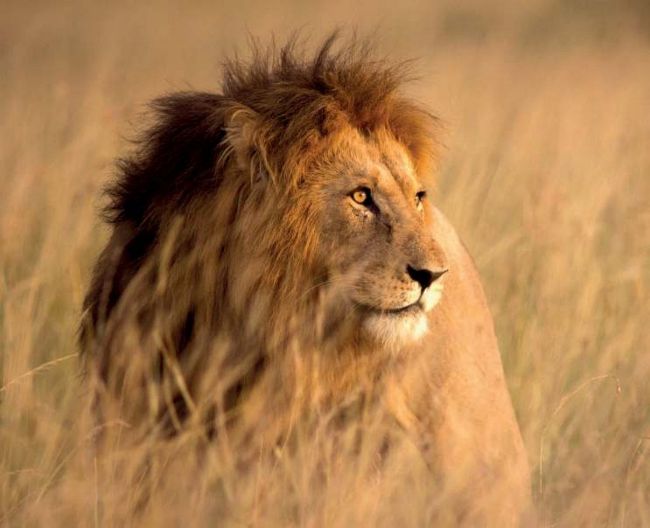
Image: iStock
There are strong biblical and theological grounds for thinking that how we treat fellow creatures is a kind of litmus test of our own Christian belief.
“A great many people come on a sort of pilgrimage to Greyfriars to share in the story of Greyfriars Bobby, to rub the nose of his statue and leave sticks at his grave. Many we’ve spoken to are drawn to the qualities of love, loyalty, and companionship in Bobby that all animals provide, which is a lovely thing to celebrate and honour.”
As you can imagine though, a service full of animals and their owners can be a bit diff erent from the run-of-the-mill Sunday service in the average church…. “It can be chaos!” Richard says.
“But you know, sometimes that feels like how it should be. A little chaos is a good thing. Jesus was a great un-settler of people’s patterns and set attitudes. I love great church music, but I often feel we need a bit of Jazz in church too!” But there’s a more serious point to animals in the Bible, and how we treat their modern-day counterparts.
“Animal Welfare is a Christian Issue”, says the Rev Professor Andrew Linzey, Director of the Oxford Centre for Animal Ethics.
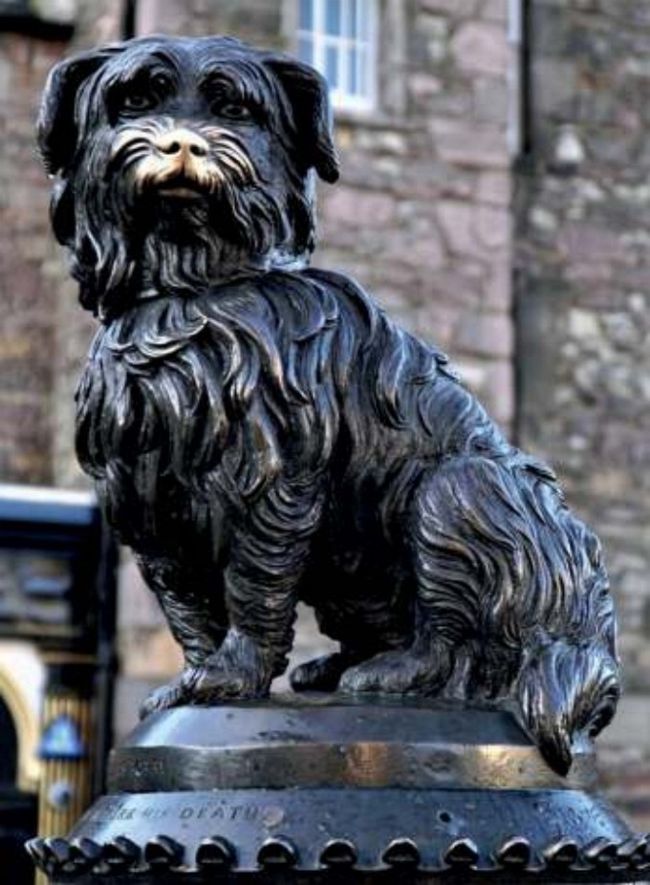
Greyfriars Bobby
“Many, if not most, Christians still think that how we treat animals is a small or marginal issue in theology and ethics.
“In fact, there are strong biblical and theological grounds for thinking that how we treat fellow creatures is a kind of litmus test of our own Christian belief.
“The Baptist preacher Charles Spurgeon once recounted the view of Rowland Hill that a person ‘was not a true Christian if his dog or cat were not the better off for it’. And commented ‘That witness is true’.
“Let us look then at some of the simple, but profound, reasons why caring for animals is a Christian issue.
“Humans are not made God’s in creation, but rather God’s own deputies. They are made in God’s image (Gen 1.27) – in the image of a God who is just, loving and holy. We are to reflect that love, and we are to care for creation according to God’s moral purpose, not our selfish wants.
“Secularists may think of animals as machines, tools, commodities, resources for us, but Christians have no such option. Animals are our fellow creatures – created by God, given their own living space, and blessed by God (Gen 1:20-25).
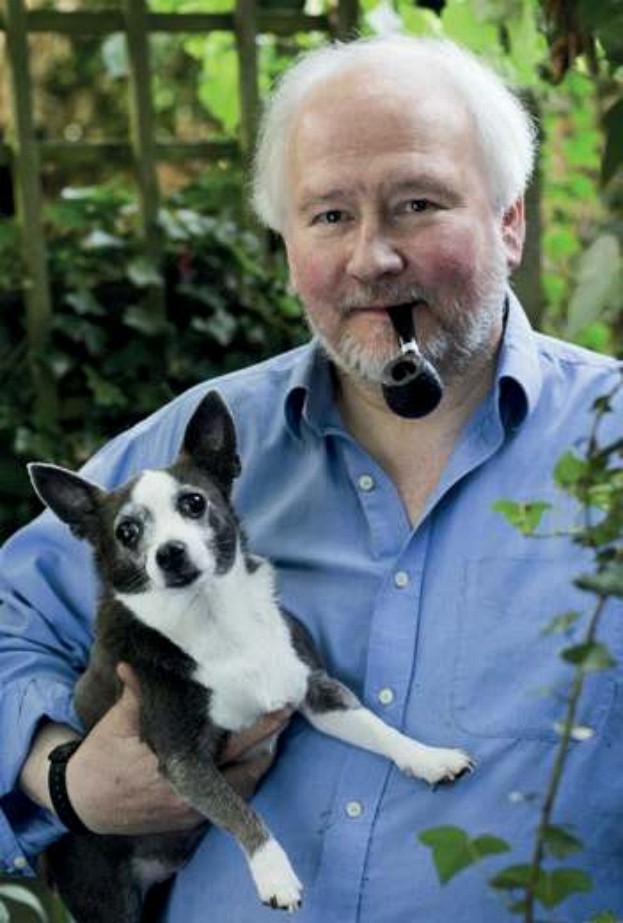
The Rev Professor Andrew Linzey
“God’s love extends to all creatures, even the life of the smallest bird (sparrow – strouthion in Greek) has value and ‘is not forgotten by God’ (Lk 12.6). John Henry Newman once remarked that ‘cruelty to animals is as if man did not love God’.
“Genesis 1 provides a vision of creation at peace. We are made in the image of God, given dominion, and all creatures are given a vegetarian diet, a position only reversed after the fall and the flood (cf Gen 1.29, 9.3, Is 11.1-9). However much killing may be inevitable in the present world, we need to remember that peaceable co-existence is God’s original will. In living without cruelty or killing (as far as possible), we anticipate God’s Kingdom.
“Might is not right. Our power (dominion) over animals needs to be interpreted in terms of in terms of Christ’s example of moral generosity, especially directed to the poor, the weak and the vulnerable – and by extension animals. We are not so much the master species but the servant species – commissioned by God to look after the cosmic garden (cf Gen 2.15).
“Christians are part of the ‘new’ creation in Christ and should be characterised by ‘kindness, humility, gentleness, patience …’ (Col 3.12). It is that spirit that led our Christian forebears (including William Wilberforce and Lord Shaftesbury) to found the RSPCA as a ‘Christian Society based on Christian principles’ in 1824.
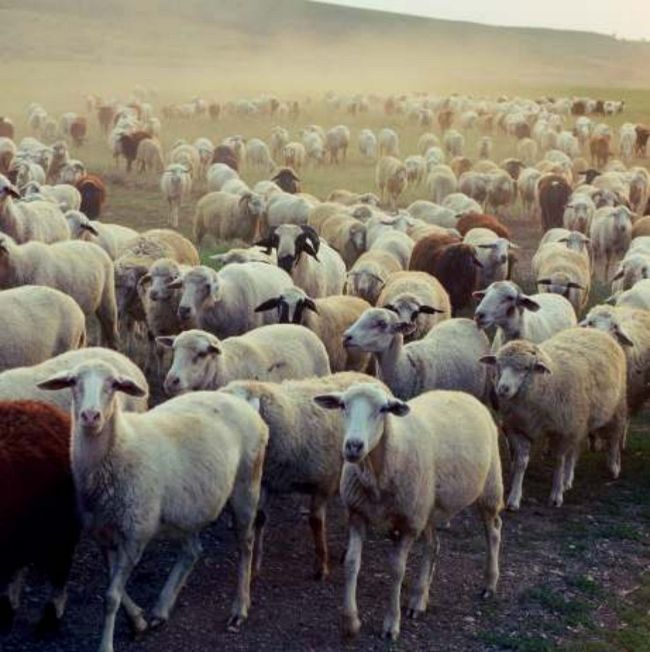
Image: iStock
“We are spiritually accountable for our treatment of animals. Like all people who are given power, we are accountable. Care for animals is a sign of righteousness, but ‘the mercy of the wicked is cruel’ (Prov 12.10). “God’s will is to redeem suff ering creation; not just human beings but all creatures who ‘groan and travail’ will ‘obtain the glorious liberty of the children of God’ (Rom 8:18-24).
“Of course there is much more to be said, but theology could only improve if theologians attended to these positive biblical voices that have so often been neglected.
“And if Christians began to actualise just a few of these insights, the world would be better for animals.”
The Routledge Handbook of Religion and Animal Ethics, by Andrew and Clair Linzey, is available from Amazon and other sellers.